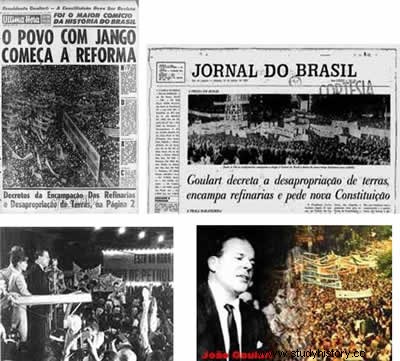 Source:http://www.google.com.br/imagens
Source:http://www.google.com.br/imagens 08 - B
09 - B

 Source:http://www.google.com.br/imagens
Source:http://www.google.com.br/imagens Question 01 - UFPR 2007 - 1st phase/Reapplication - The following text is part of an editorial by Veja Magazine published on October 9, 2002, days before the election of President Lula to his FIRST TERM. [...] Whoever the new president is, he has the challenge of maintaining the countrys achievemen
Question 01 - UNIFOR 2013.1 - During the military dictatorship in Brazil, there was a guerrilla movement in the Amazon region known as “Guerrilha do Araguaia”. Regarding this movement, mark the CORRECT alternative.(A) It was organized by the Communist Party of Brazil (PC do B) and its objective was
Question 01 - FUVEST 2013 - Transfer – Look at the following image. This image is directly related to thea) campaign for industrialization in Brazil. b) Brazils participation in World War I.c) Revolution of 1932.d) Brazils participation in World War II.e) Nationalist reaction to the 1964 coup . Que
Question 01 - UVA 2012.2 - CG - The statement The political system whose focus of power is located in the States, under the hegemony of the economically strongest, liberal in its form, oligarchic in terms of effective functioning refers, in Brazil:A. to the Estado Novo.B. to Populism.C. to the New R